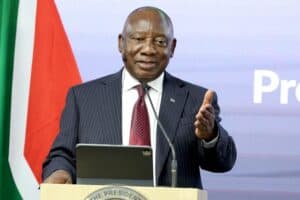Treasury allows more flexibility for it to make proposals that may alter the fiscal framework from 2019 onwards.

National Treasury has given the independent panel tasked to review the current list of VAT zero-rated items an additional month to complete its work amid concerns that the tight deadlines may not allow it enough time to do a proper analysis.
It has also broadened the panel’s terms of reference, allowing it more flexibility to make proposals that may alter the fiscal framework for the 2019/2020 financial year and thereafter, a development which may put additional pressure on the weak state of the country’s finances in future and that will require careful management.
Its previous terms of reference required it to stay within the confines of the current fiscal framework as proposed in the 2018 budget. This implied that any potential further spending required due to changes in the basket would have had to be reallocated from existing budgets.
Des Kruger, a consultant in the Tax Practice at Webber Wentzel, says the amended terms of reference suggest that if the panel makes proposals that are not tax neutral, there could be further tax implications down the road that would have to be funded some way or other.
The panel, chaired by economics professor Ingrid Woolard of the University of Cape Town, was appointed after the VAT rate was increased from 14% to 15% on April 1. The hike – a politically unpopular move – was an effort of last resort to steady the country’s weak fiscal ship. Woolard’s team has to evaluate the current list of 19 zero-rated items, which includes brown bread, eggs, milk, fruit, vegetables and maize meal, and consider the most effective way to mitigate the impact of the VAT increase on poor and low-income households.
Under its amended terms of reference, the panel may also receive and consider submissions on the zero-rating of new “non-food” items. Its previous mandate only referred to the consideration of additional zero-rated “food items”. Of particular interest seems to be the potential inclusion of sanitary products, which currently attract VAT at 15%.
Treasury has also broadened the sections that relate to the discussion of potential government expenditure programmes that can assist poor and low-income households, but has stood firm that the structure and membership of the panel will not be amended.
“The current panel is made up of nine capable, professional and highly regarded experts equipped to provide independent fact-based analysis and reporting. The panel is not under any pressure to agree with government policy when making their proposals, and we are assured that they will provide a critical and objective perspective on these issues. The panel does not have the power to make decisions, but merely recommendations to the Minister of Finance,” Treasury said in a statement on Tuesday.
Charles de Wet, head of indirect tax at PwC Africa, says a complete submission is complicated and requires proper research.
“The fact that the panel has got more time to consider all the submissions must be welcomed.”
The panel has to submit its report to the Minister on July 31. The previous deadline was June 30.
Brought to you by Moneyweb
For more news your way, follow The Citizen on Facebook and Twitter.
Support Local Journalism
Add The Citizen as a Preferred Source on Google and follow us on Google News to see more of our trusted reporting in Google News and Top Stories.






